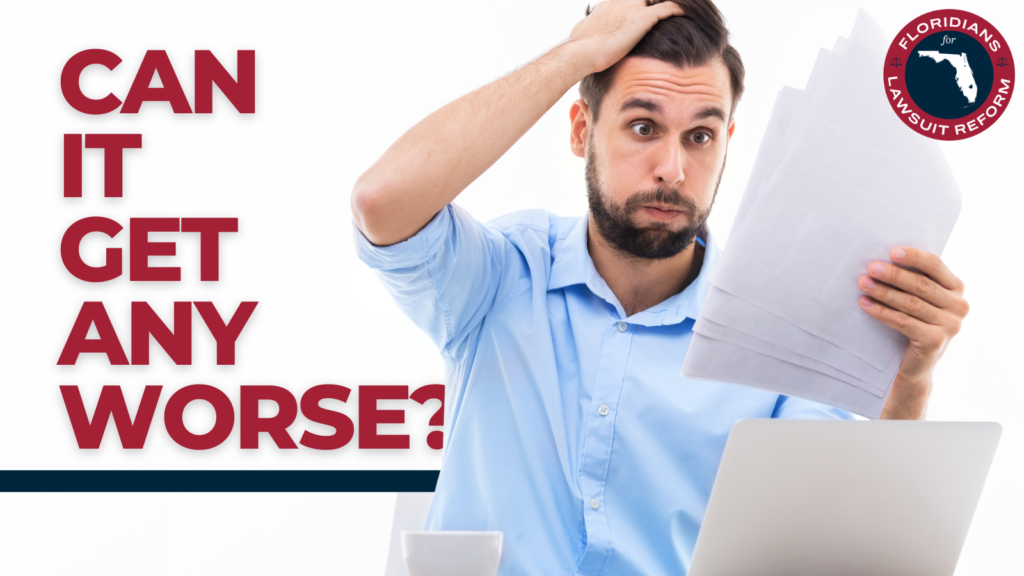
Even before Hurricane Ian struck southwest Florida, killing dozens of people and leaving massive flooding and devastation in its wake, the state was already in the throes of a property insurance crisis.
Since January 2020, a dozen insurance companies operating in Florida have gone out of business. So far this year, six Florida property insurance companies have been declared insolvent, and nearly 30 others are on the state insurance regulator’s watch list due to financial instability.
So in the aftermath of Ian, how much worse can our property insurance market get? WLRN spoke with the Insurance Information Institute.
“Right now we are anticipating Hurricane Ian will be the second largest property loss event in U.S. history,” says Mark Friedlander.
He says the largest was 2005’s Hurricane Katrina, which caused insured property losses amounting to almost $90 billion. The Institute is projecting insured property losses from Hurricane Ian in excess of $60 billion.
“That will put excessive pressures on the smaller, regional — in many cases— undercapitalized Florida-based home insurers, says Friedland. “It will make a volatile market even more unstable going forward.”
WLRN: Even before Hurricane Ian, Florida homeowners were already paying property insurance premiums that are three times the national average. How did things get this bad?
FRIEDLANDER: We have been facing a man-made insurance crisis in Florida for many years.
It’s a combination of roof replacement claim schemes where unscrupulous contractors are soliciting claims to replace roofs for illegitimate reasons, door-to-door across the state. And that’s combined with excessive litigation filed against property insurers.
These expense pressures are putting Florida property insurers out of business. We’ve already had six of the smaller insurers fail this year. And certainly there’s a possibility we could see more failures because of the expense pressures related to Hurricane Ian.
People whose policies were not renewed by struggling or insolvent insurance companies have turned to Citizens Property Insurance Corporation. The company was created as Florida’s insurer of last resort. What happens if Citizens gets overwhelmed and experiences a deficit?
At this point, Citizens appears to be in a very strong financial position to weather the storm of Hurricane Ian because the losses did not occur in their most populated areas of coverage, which are South Florida. They will not take a major hit from Hurricane Ian, according to the analysis we have seen.
This past May, Florida’s legislature met in special session to try to find a solution to the state’s property insurance problem. What was decided?
The special session was strictly focused on property insurance reform. And while some good provisions were passed, unfortunately there was nothing put in place to disincentivize the massive volume of property claim lawsuits being filed here in the state.
As a result, there was no immediate relief to the Florida home insurance market and nothing that would begin to stabilize what is a very volatile market at this point. Perhaps in 18 to 24 months, we will see some positive impacts of what occurred in the special session, but unfortunately, nothing that would help what’s happening today.
What will it take to fix this Florida’s troubled property insurance market?
Until legislation is passed that will disincentivize the excessive flow of lawsuits being filed in Florida, we will not have a road to stability. Florida will continue to remain the most volatile [property insurance] market in the U.S.
